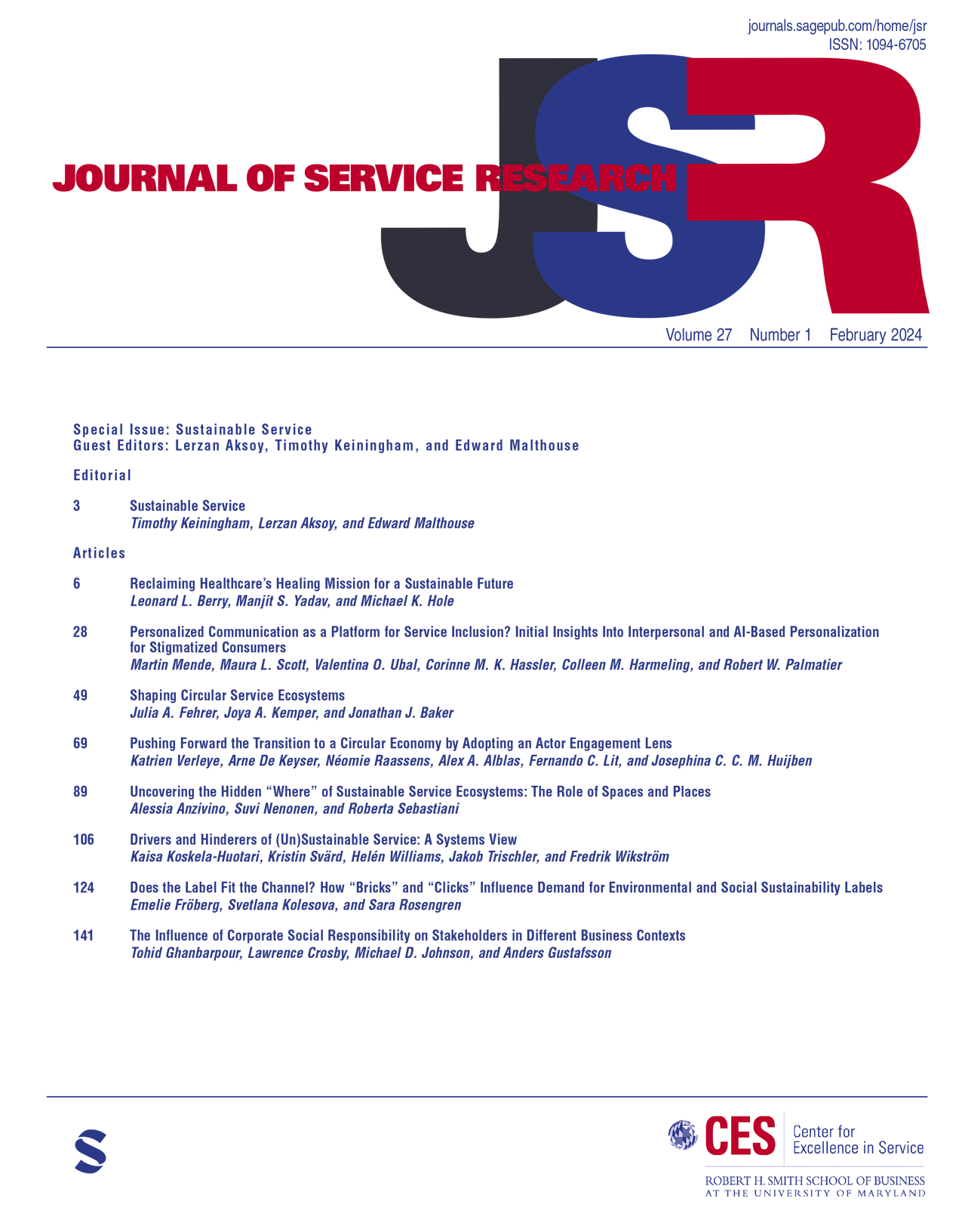一线员工动机取向与服务氛围/强度对员工需求满意度和绩效的交互影响
IF 8.6
2区 管理学
Q1 BUSINESS
引用次数: 0
摘要
一线员工对自己在组织中所扮演角色的动机取向,是最终向客户提供服务水平的重要决定因素。在本研究中,我们提出并证明了一线员工拥有两种不同形式的动机取向,以积极(即接近)和消极(即回避)的方式来构建他们的工作。研究发现,需要满足(即员工对自主性、胜任力和相关性的满足)在接近取向与服务绩效之间起到正向中介作用,在回避取向与服务绩效之间起到负向中介作用。此外,这种效应还受到服务气候和服务气候强度的影响。我们的调查依赖于一种混合方法设计,该设计在团队层面(研究一)开发和使用服务气候和服务气候强度的测量方法,以及在基于场景的实验中操纵服务气候和服务气候强度(研究二)。本文通过荟萃分析的结果,揭示了一线员工动机取向及其对服务绩效影响的研究差距。本文章由计算机程序翻译,如有差异,请以英文原文为准。
The Interactive Influence of Frontline Employee Motivational Orientation and Service Climate/Strength Upon Employee Need Satisfaction and Performance
A frontline employee’s motivational orientation toward the role s/he plays in an organization is an important determinant of the level of service that is ultimately provided to a customer. In this study, we propose and demonstrate that frontline employees possess two different forms of motivational orientation to frame their work in both positive (i.e., approach) and negative (i.e., avoidance) ways. We demonstrate that need satisfaction, or an employee’s fulfilling needs for autonomy, competence, and relatedness, mediates the positive relationship between approach orientation and service performance, as well as the negative relationship between avoidance orientation and service performance. Further, such effects are influenced by both service climate and service climate strength. Our investigation relies on a mixed-method design that develops and uses measures for service climate and service climate strength at the team level (Study One), as well as within a scenario-based experiment to manipulate service climate and service climate strength (Study Two). Results of a meta-analysis are presented to highlight the gap in research related to understanding frontline employee motivational orientation and its influence upon service performance.
求助全文
通过发布文献求助,成功后即可免费获取论文全文。
去求助
来源期刊

Journal of Service Research
BUSINESS-
CiteScore
20.30
自引率
6.50%
发文量
28
期刊介绍:
The Journal of Service Research (JSR) is recognized as the foremost service research journal globally. It is an indispensable resource for staying updated on the latest advancements in service research. With its accessible and applicable approach, JSR equips readers with the essential knowledge and strategies needed to navigate an increasingly service-oriented economy. Brimming with contributions from esteemed service professionals and scholars, JSR presents a wealth of articles that offer invaluable insights from academia and industry alike.
 求助内容:
求助内容: 应助结果提醒方式:
应助结果提醒方式:


